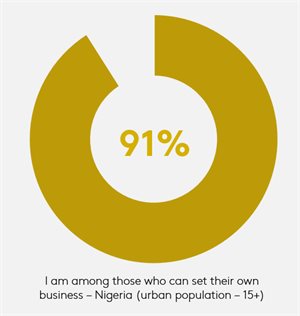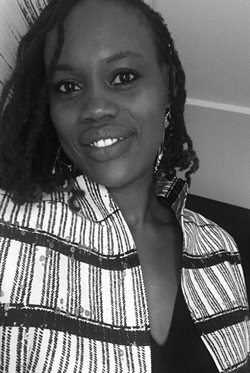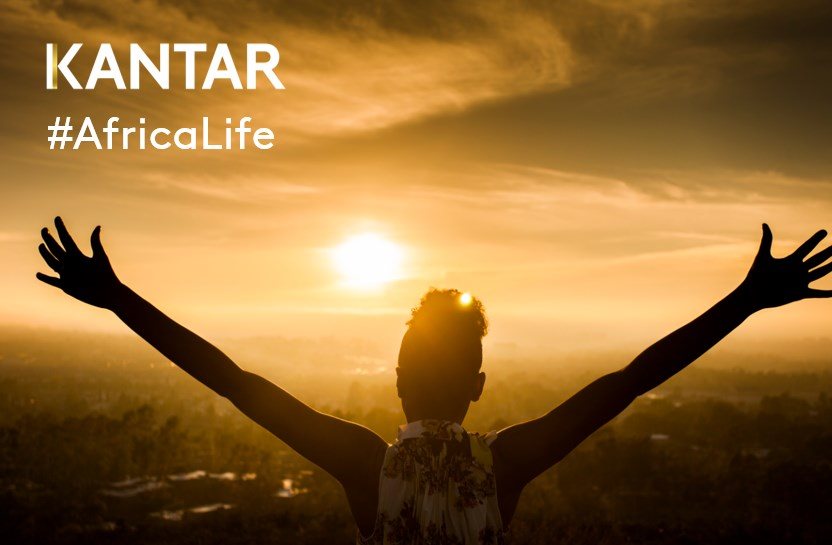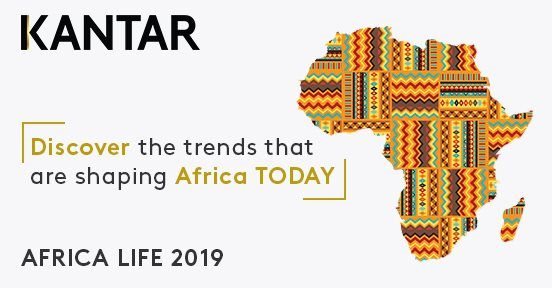The way we see the world impacts our happiness level. We all know this. What meditation has also taught me is that the way we see the world impacts our performance: our capacity to innovate, to create, to go beyond our limits and build compelling journeys of development and growth.
Whenever you see Africa in the headlines, you would hardly want to be associated with the story told: an alarming military coup in an already upside-down country somewhere in West Africa; an overwhelming number of dying children in a remote region of the Eastern side; a new spur of violence between two ethnic groups killing each other somewhere in the centre of Africa. Sounds familiar, right? A certain definition of hell, one must confess. But the much too silent story of the African continent is a story of growth, one where people and brands do thrive.

I used to feel upset and powerless against the headlines. I’m still in some way. But there’s been a big shift over the years: from upset to boredom. I now feel terribly bored by such news because they are so misrepresentative of the continent’s full dynamics. They are incomplete in nature and self-limiting in that they are unconscious biases to our capacity to see growth and enable it. This is not to claim that the hard truths should not be told. This is to claim the full truth, bridge to growth. We know about The Danger of a Single Story! Thank you Adichie.
Why don’t we talk more of the visible seeds of change and progress which African people and consumers experience every day? Why don’t we amplify more the countless entrepreneur initiatives launched by a determinedly creative African youth? Why don’t we celebrate more the inspiration Africa increasingly offers to the world in a variety of fields? From arts to broader culture to tech.
The real story…
The real story about Africa is that its economies are growing fast. Faster than the rest of the world. Seven out of the ten fastest growing economies in the next five years will be African. The middle-class population (currently 35% of the continent) is growing in remarkable ways. These macro trends are both causes and consequences of several (positive) dynamics at play in most African markets, a story told in numbers by our new data from the Africa Life Study, comprising 5,000 interviews across 6 countries in sub-Saharan markets.
In Senegal, employment level is noticeably increasing as a result of many ongoing infrastructure projects, a booming retail landscape and growing entrepreneur initiatives. 80% of the Senegalese urban population feel and report being optimistic about their future as consumers and as citizens. In Nigeria, I doubt entrepreneurship aspirations have ever scored so high: today it’s more than nine out of ten people who would be ready to start their own business, positive, poised and confident in their own skills. The younger Nigerian population echoes the same energy on all aspects of optimism: 63% of 20 to 25 year olds are positive about the future and expect their financial situations to improve within 12 months. The practical materialisation of such i.e. better living conditions, is both an ambition and a reality in the making across all age groups.
Moving East, Nairobi ticks many record boxes in the digital space. It is the most connected capital city in sub-Saharan Africa with 71% of adult people having internet access and 92% of them connected online daily. Nairobi inspires the world as the centre of the African digital creativity. When Mark Zuckerberg visited Kenya three years ago, he openly declared he was there to learn more about the success of mobile money. Today, the still (very) confidential plans about Libra (Facebook bitcoin) are largely believed to be a world-scale of the Kenyan M-Pesa. Mobile Money like the Kenyan M-Pesa has transformed the lives of millions of Africans from around the continent over the past 15 years and is expected to continue to play a crucial part in the continent’s positive transformations. It will continue to make consumption easier, accelerate the path to e-commerce and fuel growth both for consumers and brands.
To succeed in Africa, brands must love Africa!
Foundations are set to trigger new dynamics, progress, growth. It’s not to come, it IS happening. This is the other side of the Africa story which we want to see more of: positives are countless and opportunities infinite. Many other doors still await opening. From basic food services to heathier offerings, from essential household equipment to smart infrastructures, from modernized shopping journeys to maximised retail experiences. From low to high end services – across most sectors.
In this context, brands that are actualising growth are those that are able to successfully peel off the first layers of preconceptions, skepticism and hostility; brands that are moving away from the too-easy ‘hell-narrative’ to a more compelling and authentic narrative of faith in the continent, optimism, pride and drive; brands which tap into the ambient forces of self-belief, resilience, ingenuity and creativity; and yes, brands which put African resourcefulness at the center of their execution and the continent’s growth at the heart of their purpose.
Who is getting it right?
Take Accor for instance. The world leading travel and lifestyle group reported a record year of growth last year in Africa, through a few strategic acquisitions but also powerful Africa-inspired lifestyles concepts developed across many African countries. In Dakar, the brand created never-seen-before living spaces, embedded in African culture and art, designed by talented local artists from fashion to photo to music. With a unique sense and taste of hospitality, they executed a new, long-awaited, narrative of the African Way of Life, winning massive audiences. More broadly across the continent, their MyChicAfrica lifestyles media platform invites creativity, innovation and experiences in a continent under a different light. It pays off.
We learn from the winning brands that growth in Africa is the result of a powerful narrative of faith and desire, authentically and successfully translated into final products or services. To win, see the light, not the shadow; hear the rhythm, not the noise; switch hell with opportunity… and move fast. Everything is changing so fast that if we fail to see the reality in full, there is little chance to make it in the future. One of my favorite African narrators amusingly says: ‘the one who does not have the capacity to project themselves in the future will not find themselves there.’
Ready to switch your views?
#AfricaLife
Data from Africa Life Study – 5,000 interviews across 6 countries in Sub-Saharan markets. 2019
To find out more contact:

Ndeye Diagne
Ndeye Diagne
MD Francophone West Africa & Ghana, Insights Division, Kantar
moc.ratnak@engaid.eyedn





























